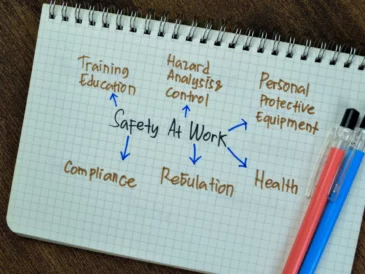The economy of South Africa is in a difficult position. The decline can be attributed to several different causes. These include serious load-shedding schedules that are putting a strain on all areas of the economy, higher inflation, rises in food costs, the impacts of the Ukraine-Russia dispute, which has resulted in increased fuel and energy prices worldwide, prolonged labor strikes, and a high level of unemployment. In addition, there have been several other factors that have contributed to the current state of the economy.
The number of businesses that have been forced to shut their doors as a direct result of the COVID-19 disease outbreak represents another danger to South Africa’s economy. According to information provided by Statistics South Africa, the number of businesses that were liquidated rose by 44.8% in the year leading up to August 2022. According to the data, there were 145 liquidations in June 2022 (compared to 132 in June 2021), and the number of insolvencies in South Africa expanded to 165 in July 2022 and 239 in August 2022.
Due to the challenging operating conditions, boards need to be strong and comprised of members with a wide variety of experiences and skill sets. According to the Companies Act, the shareholders do not hold the ultimate power in a company; rather, that power resides with the board of directors.
The COVID-19 pandemic brought to light the importance of company boards having the leadership skills necessary to guide their organizations through difficult times. There are four things that businesses should be doing to bolster the resilience of their boards of directors to better weather the current economic storm.
Consider Whether or Not an Update is Required

Businesses must determine whether or not they need to make changes to their boards of directors and their leadership. It is possible to solidify the board and inhibit complacency by recruiting new non-executive independent members who bring with them new perspectives and new areas of expertise.
The day-to-day operations of the company’s business are not under the supervision of the non-executive directors, who aren’t full-time salaried employees of the company either. They are considered to be independent if there are no interests or relationships between them that have the potential to inappropriately impact or induce bias in the decisions that they make.
According to the recommendations made in the King IV Report on Corporate Governance in South Africa, a large percentage of trustees should consist of non-executive directors, and the vast bulk of those non-executive directors should be independent. This helps to maintain objectivity and minimizes the likelihood of conflicts of interest occurring.
According to the findings of the investigation, the South African Companies Act doesn’t establish a limit on the amount of time that a director may remain on a board of directors. A director who is selected by the shareholders may continue to sit on a board indefinitely or for the amount of time that is specified in the company’s constitution if one exists.
Experts in corporate governance assert that long-serving non-executive directors are so involved with the company that they have little independence, which ultimately leads to unsatisfactory performance by the company. Companies that have long-serving non-executive directors are more likely to have unsatisfactory performance.
Investor activists in South Africa have voiced their opposition to directors serving on boards for extended periods. They have put a lot of pressure on the non-executive directors who have been there for a long time to resign. Businesses must examine the length of service of their non-executive directors and determine whether or not they have lost their independence.
Directors are legally required to act with integrity and in a manner that is both in the company’s and their own best interests. Therefore, boards need to maintain a balance among directors who have expertise and understanding of the company. It is even possible for businesses to incorporate the counsel of industry professionals into their board committees. The Companies Act does not prohibit this so long as the individuals involved are not ineligible to serve as directors and they abstain from voting.
Recently, as part of the government’s strategy to find a solution to end South Africa’s energy crisis, the board of directors of the power utility Eskom was subjected to a significant amount of change. Except for one non-executive director, every director and the chair of the board were replaced. There are now five directors who have technical expertise. Their areas of expertise include engineering, energy policy, the delivery of electricity, and accounting.
The previous board, which only had six directors and was criticized for its lack of engineering expertise, has been replaced by a new board that has thirteen directors rather than just six.
The introduction of a wider variety of skills and areas of expertise has resulted in the board’s strengthening as a result of these significant changes. It is hoped that the board will be able to find efficient strategies to put an end to the energy crisis in South Africa as a result of the shakeup.
Analyze the Board’s Operations

In order for boards to effectively govern a company, they need to conduct an assessment of both their strengths and weaknesses. The success of the board together with its committees, individual directors, and the board chair must be evaluated at least once a year by companies.
The results of the evaluations need to be considered by the companies, and those findings should be used to solidify the board. For instance, if any directors lack experience in governance, they should be motivated to complete training or provided with a mentor who can guide them through the process. Every director should make it a point to stay current on legal developments so that the board can continue to function effectively. They should also commit to their ongoing education and improvement.
According to the findings of my investigation, the King IV Report on Corporate Governance provides a significant amount of leeway for the performance evaluation of the board to be carried out internally.
To maximize its objectivity and impartiality, businesses, in my opinion, should go for the option of having the evaluation carried out by independent third parties from the outside.
Increase Your Focus on Risk Oversight as Well as Your Appetite for Risk

The board has to be willing to take some moderate risks. In a way that is responsible and not careless, it needs to strike a balance between the risks and the potential opportunities.
The board ought to examine its level of risk tolerance whenever the economy is in a slump. The company’s options may be restricted if the risk appetite is excessively conservative in a depressed economy. Therefore, businesses need to seriously consider the possibility of embracing a risk level that they might have regarded as unacceptably high when the economy was doing better.
The governance of threats is often handed off to internal auditors at many different companies. As a result of the complexity of risk, the King IV Report suggests having a committee that is solely dedicated to risk. Because of the recent state of the economy, this is currently more crucial than it has ever been.
Streamline and Improve the Processes and Procedures Used Internally

The effectiveness of the board’s internal policies and procedures is something that needs to be evaluated. If not, they are required to improve so that the committee can operate at its optimum level.
The board of directors has a responsibility to ensure that they have access to all of the relevant information to make sound decisions. In order to ensure that board meetings are fruitful and well-run, the chair of the board should see to it that the agenda for the board is both comprehensive and well-organized.
During trying times, the board of directors ought to get together more frequently. Because of this, they will be able to participate in more considerate deliberations, investigate a variety of options, and weigh the relative importance of competing considerations.
A struggling business is likely to have a struggling board of directors. In challenging economic times, the success of a company is heavily dependent on the quality of its board of directors. In order for businesses to thrive in the current economic climate, they have an immediate obligation to take measures to bolster the effectiveness of their boards of directors.





